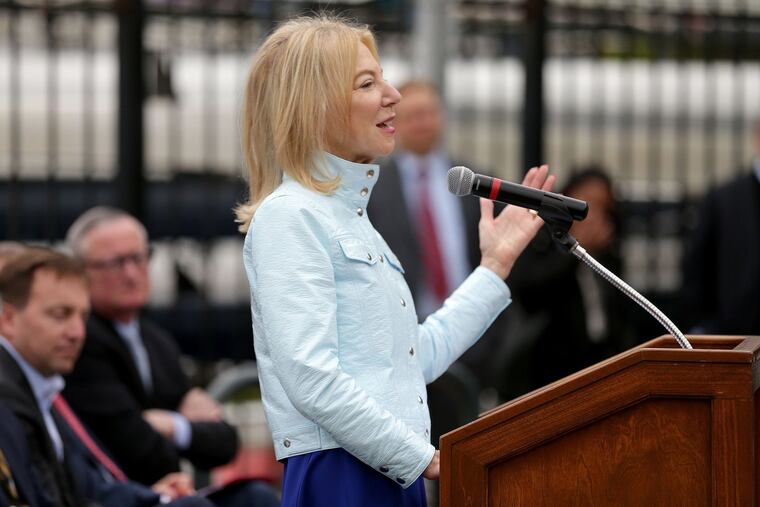Letters to the Editor | Aug. 24, 2023
Inquirer readers on Donald Trump and the 14th amendment, Penn's responsibility to its surrounding community, and the nuances of gender identity.

Making the case
Many scholars have considered, discussed, and concluded that under the 14th Amendment, Donald Trump may not again hold the office of president for giving aid to an “insurrection or rebellion” in violation of Section 3. Therefore, is it fraud for him to continue to raise money for his candidacy? Perhaps some class-action law firm should talk to some donors and see how this turns out.
Bob Fleischmant, Philadelphia
Good neighbor
News that Penn made a $3.7 million home loan to former university president Amy Gutmann brings the Penn employee housing policy full circle. In about 1970, Penn began guaranteeing loans to employees purchasing homes in University City, a then thoroughly redlined neighborhood. As the neighborhood was viewed as distressed, many of these purchasers were employees working in lesser-paid jobs — maintenance, clerks, cafeteria workers, and such. Their presence proved that good employees make good neighbors, and their presence stabilized the area. Unfortunately, after more than a decade of offering this program, the university substituted a less useful but ironically more expensive program that principally benefited higher-income employees, and the gentrification of University City commenced in earnest. With this news, the university confirms that no benefit is too great for the highest paid, while the least can expect little or nothing. It is time for Penn to return to its good neighbor housing policies of a previous era, for its own good as well as that of its employees and the city as a whole.
Daniel Hoffman, Philadelphia
Gender identity
David Biddle concludes his op-ed, “Our national conversation about gender identity is one big miscommunication,” by saying that gender identity belongs to “every single one of us.” That seems to be a simplistic answer to a complex question. On one level, I agree with him. There is no legitimate reason to stop a person from making choices about their identity. On another level, however, this approach can be dangerous. Take, for example, the case of Isla Bryson, who was convicted of raping two women as a man, then deciding they were a woman. Under Scotland’s law, they were sent to a women’s prison, a decision that respected their identity yet endangered all the residents of the prison. In another case, a trans woman in a women’s spa exposed male genitals to women and girls. Did that person’s right to self-declare as a woman outweigh the rights of women who did not wish to be exposed to male genitals?
While these are very rare situations, women have fought for their rights for decades. Do they not deserve at least to be heard in this discussion? Author J.K. Rowling has been vilified for taking a position that supports the safety of both trans women and what she deems “natal” women. As a society, we need to honor the wishes of all our members. We need to have a healthy, ongoing dialogue to help us get to a fair and just solution to a very thorny issue. That dialogue cannot include shutting up the other side, whether by book banning or cancellation — as long as the dialogue is civil and respectful. Biddle is right that an individual should be able to determine the way they are perceived. But the broader questions must be resolved.
Kenneth Gorelick, Wayne
Join the conversation: Send letters to letters@inquirer.com. Limit length to 150 words and include home address and day and evening phone number. Letters run in The Inquirer six days a week on the editorial pages and online.